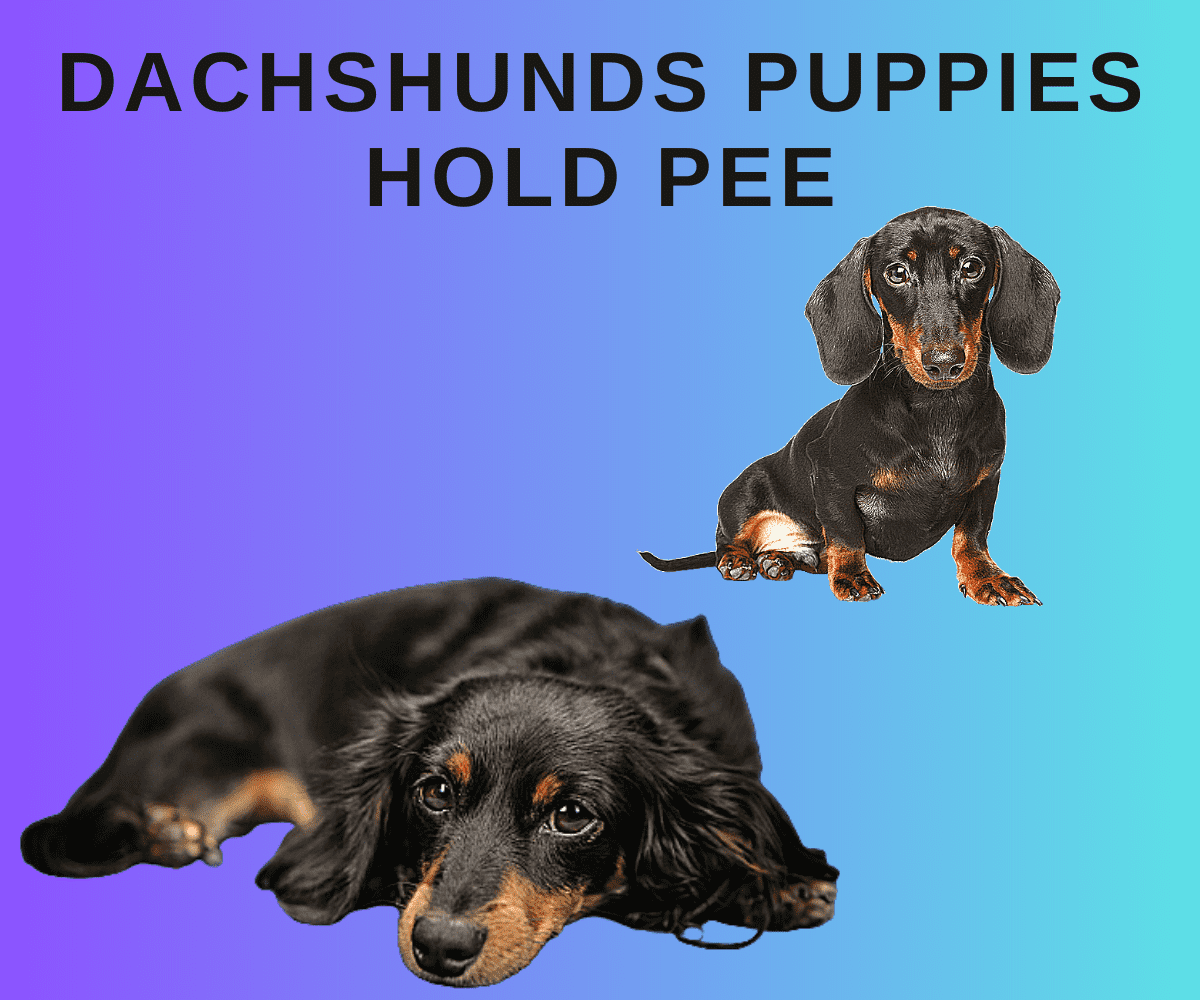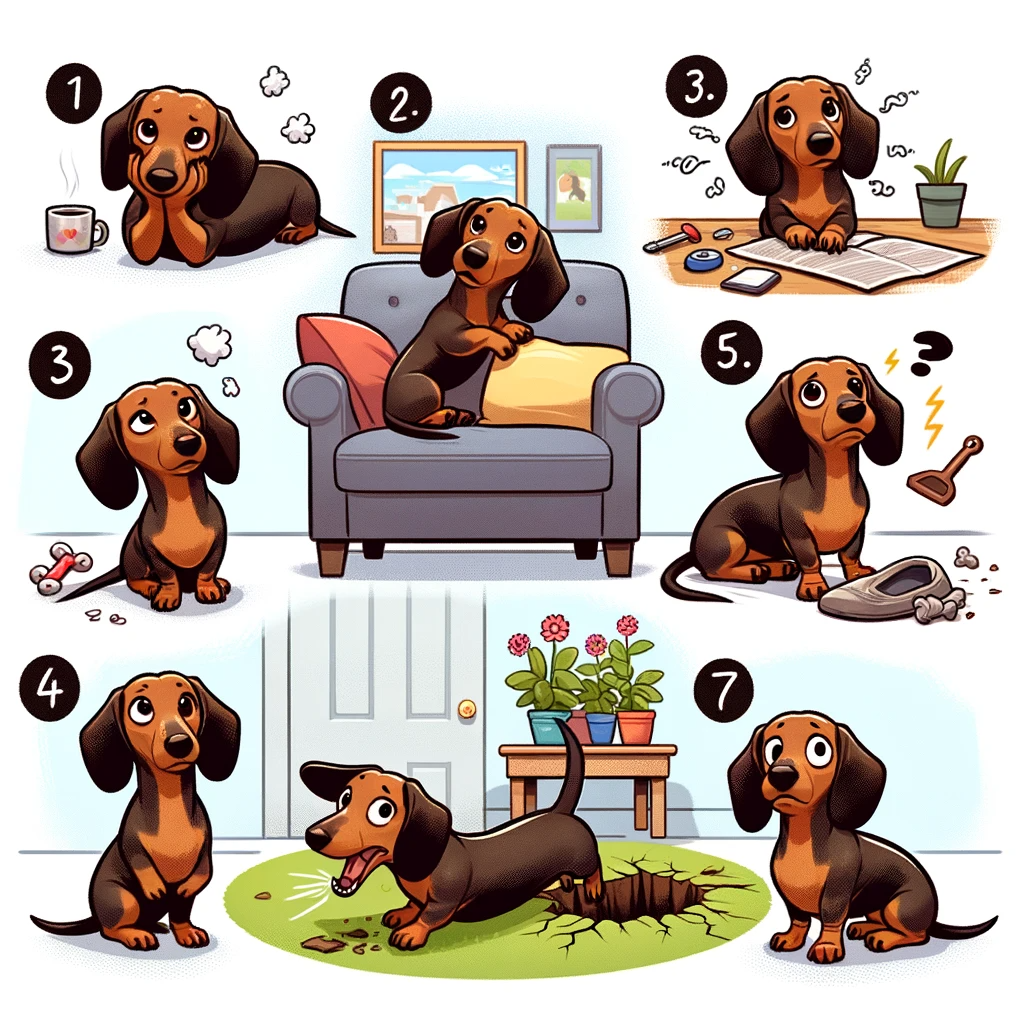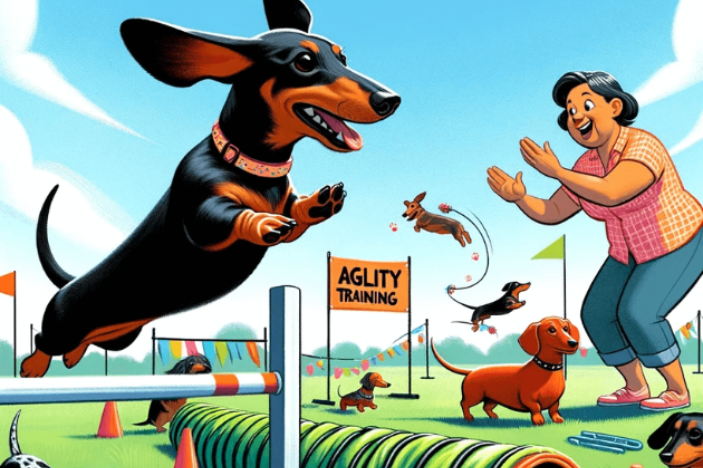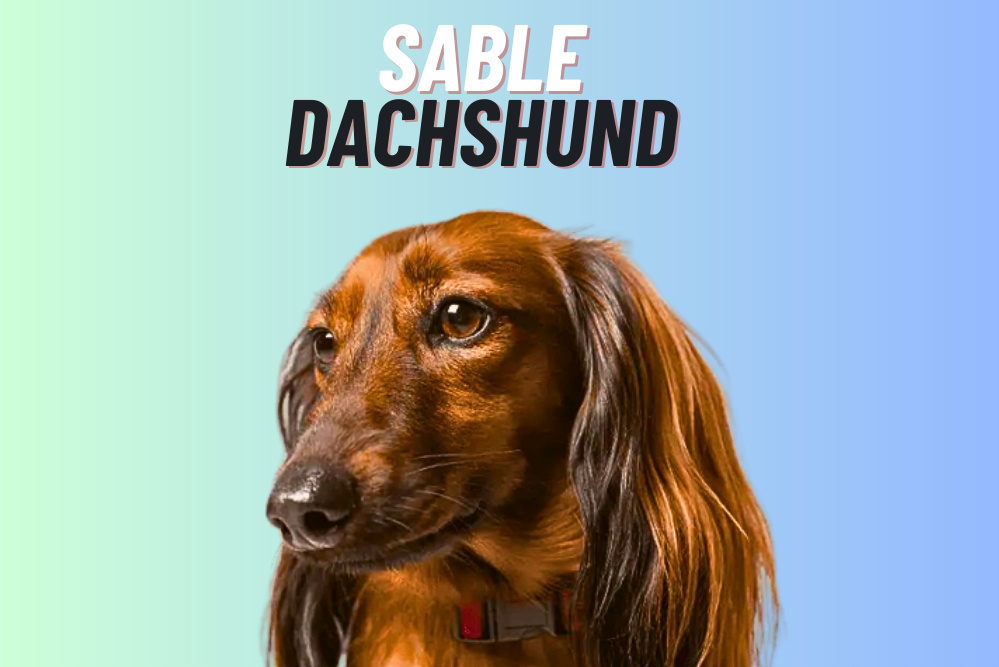Dachshund puppies, like all puppies, have small bladders and will need to go potty frequently. It is important to establish a regular potty routine and be aware of how long your Dachshund puppy can hold pee. Here is a complete guide about how long can a Dachshund puppy hold pee:
Age of Dachshund Puppy: The age of the Dachshund puppy is a significant factor in how long it can hold its pee. puppies can hold their pee for 1 to 2 hours.
Size of Dachshund Puppy: The size of your Dachshund puppy also plays a role in how long it can hold its pee. Smaller Dachshund puppies will have smaller bladders and, therefore, need to go potty more frequently than larger puppies.
Food and Water Intake: The food and water intake of your Dachshund puppy can also impact how long they can hold their pee. Puppies who eat and drink more will need to go potty more frequently than those who eat and drink less.
Potty Training: Potty training is an important part of teaching your Dachshund puppy how to hold their pee. Consistently taking them outside to potty and rewarding them when they do will help them understand that outside is where they should go potty. As they become more potty trained, they will be able to hold their pee for longer periods.
Health Issues: If your Dachshund puppy is having trouble holding their pee or is having accidents in the house, it may be due to a health issue.
Urinary tract infections, bladder stones, or other health issues can cause your puppy to need to go potty more frequently. If you suspect a health issue, consult with your veterinarian.
What considerations should you make in order to manage a dachshund’s urination?
When managing a dachshund’s urination, there are a few important considerations to keep in mind:
- Frequency: Dachshunds have small bladders and may need to urinate more frequently than larger dogs. As a general rule, adult dachshunds should be taken out to urinate every 3-4 hours.
- Routine: Establishing a routine for your dachshund’s urination can be helpful. Try to take your dog out to urinate at the same times each day, such as after meals or before bedtime. This can help your dog learn when to expect opportunities to urinate, which may reduce accidents in the house.
- Supervision: Supervise your dachshund closely when indoors to prevent accidents. If your dog shows signs of needing to urinate, such as sniffing or circling, take them outside immediately.
- Potty training: Potty training is essential for managing a dachshund’s urination. Use positive reinforcement techniques, such as treats and praise, to reward your dog for going outside. Consistency is key, so make sure everyone in the household follows the same training methods.
- Health issues: If your dachshund is urinating more frequently than usual or has accidents in the house, it could be a sign of a health issue such as a urinary tract infection. Consult your veterinarian if you suspect your dachshund has a health problem.
By following these considerations, you can help manage your dachshund’s urination and reduce accidents in the house
Do all Dachshunds pee when excited?
Not all Dachshunds pee when they are excited, but it is not an uncommon behavior for some of them.
Excitement urination is a common issue for puppies, and some Dachshunds may continue this behavior into adulthood. It is more common in female Dachshunds than males.
Excitement urination is usually a result of a lack of bladder control due to a surge of adrenaline when the dog becomes excited.
It is not a behavioral issue or a sign of disobedience, so punishing your Dachshund for this behavior is not recommended. Instead, you can try to manage the situation by reducing the level of excitement and stimulating the dog to go potty before any exciting event.
In any case, if you are concerned about your Dachshund’s urination behavior, it is always a good idea to consult with a veterinarian to rule out any underlying medical issues
How to Care for Your Puppy’s Pee?
Caring for your puppy’s pee involves several steps to maintain good hygiene and ensure a healthy environment for your pet. Here are some tips to help you care for your puppy’s pee:
- Establish a designated area: Choose a specific area in your yard or outside where your puppy can go potty. This will help them learn to associate that area with going potty and make it easier for them to clean up.
- Clean up immediately: Always clean up your puppy’s pee as soon as possible to prevent the smell from lingering and discourage your puppy from going potty in the same spot again.
- Use the right cleaning products: Use a pet-safe cleaning solution to clean up your puppy’s pee. Avoid using harsh chemicals or bleach as these can be harmful to your pet.
- Train your puppy: Train your puppy to go potty in the designated area by using positive reinforcement techniques. Reward them with treats or praise when they go in the right spot.
- Monitor your puppy’s pee: Keep an eye on your puppy’s pee to ensure that it is a healthy color and consistency. If you notice any changes, such as blood in the urine or a strong odor, contact your veterinarian right away.
- Provide plenty of water: Make sure your puppy has access to plenty of fresh water throughout the day to help maintain good hydration and prevent urinary tract issues.
By following these tips, you can help keep your puppy’s pee area clean and healthy, and ensure that your pet stays happy and comfortable
How to Tell If Your Puppy’s Pee is a result of an Infection?
If you notice any red or pus-filled areas in your Puppy’s pee, he may have an infection. These areas may indicate an infected area in his body, and you will need to take him to the veterinarian for further treatment.
Check for white blood cells in your Puppy’s pee.
If your Puppy’s Pee is white and light, it may be nothing more than drainage from his nose and ears. However, if it becomes darker or there are large quantities of white blood cells in his urine, he may have a serious infection. For additional care, you must transport him to the vet.
Conclusion
In conclusion, Dachshund puppies can hold their pee for a maximum of 1 to 2 hours. Factors such as size, food and water intake, potty training, and health issues can all impact how long a Dachshund puppy can hold their pee.
Consistent potty training and monitoring your puppy’s behavior can help you determine when they need to go potty and avoid peeing and pottying in the house
You must take your pup to the doctor if his pee is the consequence of an infection. Keep your puppy’s pee clean and free from bacteria, feed him a balanced diet, and clean his Urinal Can every week.




